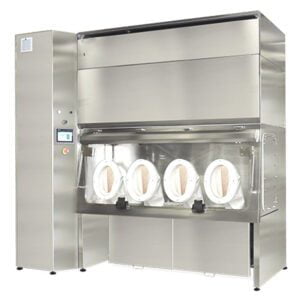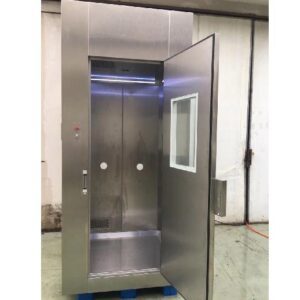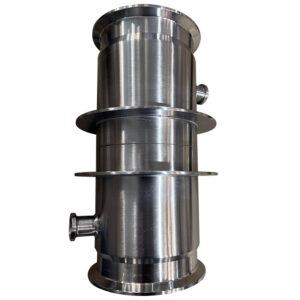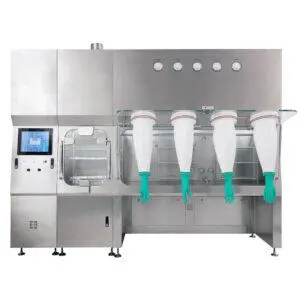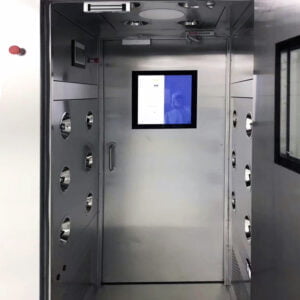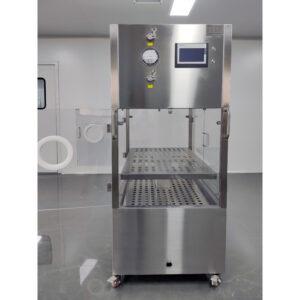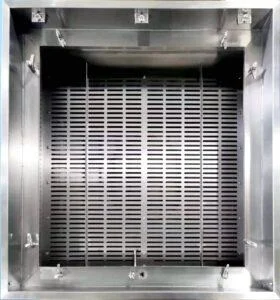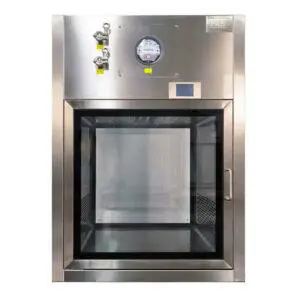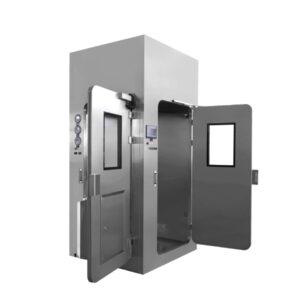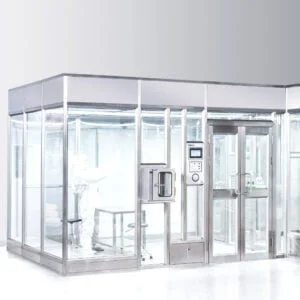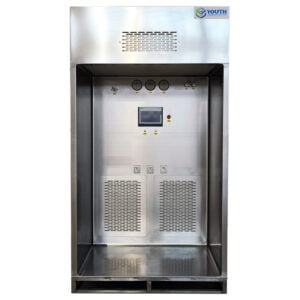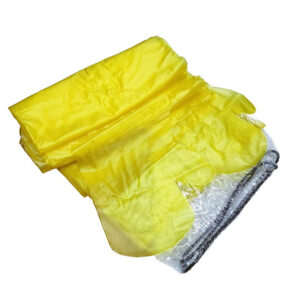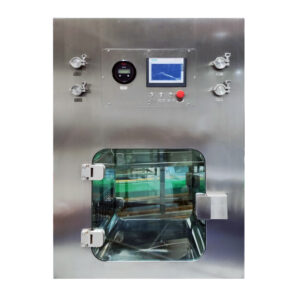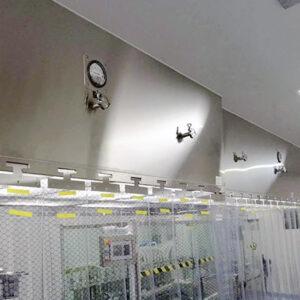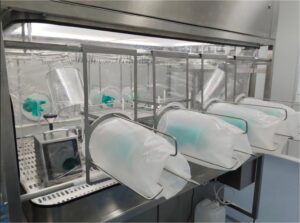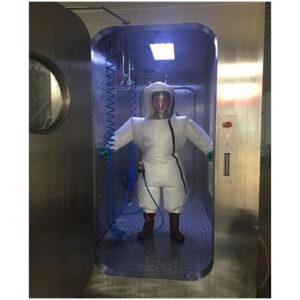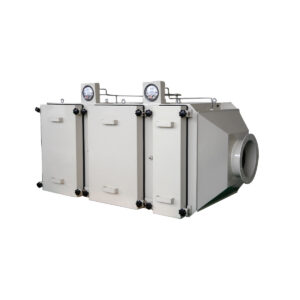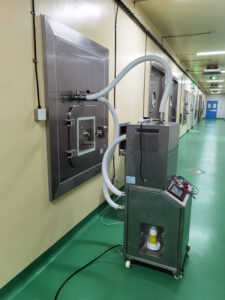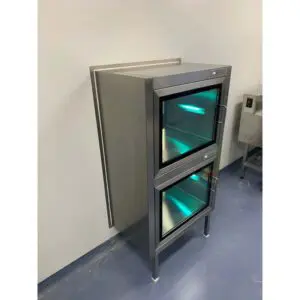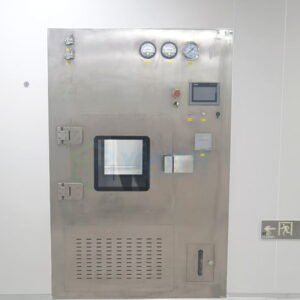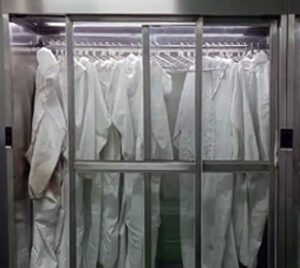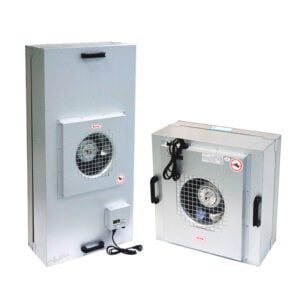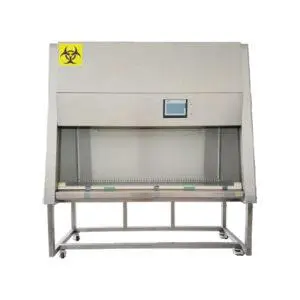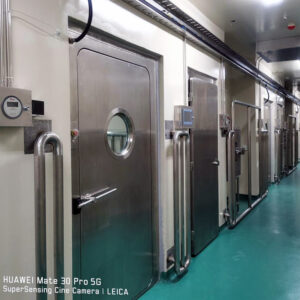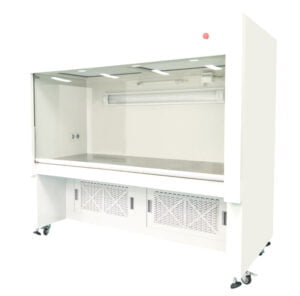HEPA filters are essential components in air purification systems, playing a crucial role in maintaining clean and healthy indoor environments. As an expert in air quality solutions, I understand the importance of proper HEPA filter maintenance for optimal performance and longevity. In this comprehensive guide, we'll explore the best practices for extending the life of your HEPA filters, ensuring they continue to effectively remove airborne particles and contaminants from your indoor spaces.
Maintaining HEPA filters is not just about prolonging their lifespan; it's about ensuring consistent air quality and protecting your investment in air purification technology. From routine cleaning to proper handling and storage, we'll cover everything you need to know to keep your HEPA filters functioning at their best. Whether you're using HEPA filters in your home, office, or industrial setting, these maintenance tips will help you maximize their efficiency and durability.
As we delve into the world of HEPA filter maintenance, we'll address common questions and concerns, provide practical tips, and offer insights based on years of industry experience. By the end of this article, you'll have a thorough understanding of how to care for your HEPA filters, potentially saving you money on replacements while ensuring the air you breathe remains clean and healthy.
HEPA filter maintenance is crucial for ensuring optimal air purification performance and extending the lifespan of these essential components in air cleaning systems.
What Are the Basics of HEPA Filter Maintenance?
HEPA filter maintenance begins with understanding the fundamental principles of these high-efficiency filters. HEPA, which stands for High-Efficiency Particulate Air, filters are designed to capture particles as small as 0.3 microns with 99.97% efficiency. This remarkable capability makes them indispensable in various settings, from residential air purifiers to industrial clean rooms.
The basics of HEPA filter maintenance involve regular inspection, proper cleaning (when applicable), and timely replacement. It's important to note that not all HEPA filters are created equal, and maintenance procedures can vary depending on the specific type and application of the filter.
One of the most critical aspects of HEPA filter maintenance is knowing when and how to clean or replace the filter. While some HEPA filters are designed to be cleaned and reused, others are strictly disposable. Understanding which type you have is crucial for proper maintenance.
Regular inspection and proper handling are the cornerstones of effective HEPA filter maintenance, ensuring that these filters continue to provide high-level air purification.
| HEPA Filter Type | Maintenance Approach | Typical Lifespan |
|---|---|---|
| Disposable | Replace when dirty | 6-12 months |
| Washable | Clean periodically | 2-5 years |
| Permanent | Clean and inspect regularly | 5+ years |
In conclusion, mastering the basics of HEPA filter maintenance sets the foundation for ensuring clean air and prolonged filter life. By understanding the different types of HEPA filters and their specific maintenance needs, you can develop an effective care routine that keeps your air purification system running at peak performance.
How Often Should HEPA Filters Be Inspected?
Regular inspection of HEPA filters is a critical component of effective maintenance. The frequency of inspection can vary depending on several factors, including the environment in which the filter is used, the level of air pollution, and the specific recommendations of the manufacturer.
For most residential and light commercial applications, it's generally recommended to inspect HEPA filters at least once a month. This routine check allows you to identify any visible signs of wear, damage, or excessive dirt accumulation. In environments with higher levels of pollutants or more frequent use, such as industrial settings or homes with pets, more frequent inspections may be necessary.
During these inspections, look for signs such as discoloration, visible dirt or debris, unusual odors, or any physical damage to the filter material. It's also a good time to check the overall performance of your air purification system, noting any changes in airflow or unusual noises that could indicate a problem with the filter.
Monthly inspections of HEPA filters are crucial for maintaining optimal air purification performance and catching potential issues before they escalate.
| Environment Type | Recommended Inspection Frequency |
|---|---|
| Residential | Monthly |
| Office | Bi-weekly |
| Industrial | Weekly or more |
| Healthcare | Daily or per shift |
In conclusion, regular inspections are a proactive approach to HEPA filter maintenance. By establishing a consistent inspection routine, you can catch potential issues early, ensure your air purification system is functioning optimally, and make informed decisions about when to clean or replace your filters. Remember, the goal is to maintain clean air while maximizing the lifespan of your HEPA filters.
Can HEPA Filters Be Cleaned, and If So, How?
The question of whether HEPA filters can be cleaned is a common one, and the answer depends on the specific type of HEPA filter you have. Some HEPA filters are designed to be washable or cleanable, while others are strictly disposable. It's crucial to consult your filter's manufacturer guidelines before attempting any cleaning procedure.
For washable HEPA filters, the cleaning process typically involves gently rinsing the filter with cool water. It's important to avoid using any soaps or detergents, as these can damage the delicate filter fibers. After rinsing, allow the filter to air dry completely before reinstalling it. This process can help remove accumulated dust and debris, potentially extending the filter's lifespan.
However, it's important to note that even washable HEPA filters have a limited number of cleaning cycles before they need to be replaced. Over time, the filter material can degrade, reducing its effectiveness in capturing fine particles.
While some HEPA filters can be cleaned, it's crucial to follow manufacturer guidelines and understand that cleaning may not restore the filter to its original efficiency.
| Filter Type | Cleaning Method | Frequency |
|---|---|---|
| Washable HEPA | Gentle water rinse | Every 3-6 months |
| Permanent HEPA | Vacuum exterior | Monthly |
| Disposable HEPA | Not recommended | N/A |
For non-washable HEPA filters, cleaning is generally not recommended. Attempting to clean these filters can damage the delicate fibers and compromise their filtration efficiency. Instead, these filters should be replaced according to the manufacturer's guidelines or when they show signs of excessive dirt accumulation.
In conclusion, while some HEPA filters can be cleaned, it's essential to approach this process with caution and understanding. Proper cleaning can help maintain filter performance, but it's not a substitute for eventual replacement. Always prioritize the manufacturer's recommendations to ensure you're not inadvertently compromising your air quality.
What Are the Signs That a HEPA Filter Needs Replacement?
Recognizing when a HEPA filter needs replacement is crucial for maintaining optimal air quality and system performance. While regular inspections can help you catch many issues, there are specific signs that indicate it's time for a new filter.
One of the most obvious signs is a visible accumulation of dirt, dust, or debris on the filter surface. If you notice that the filter appears gray or discolored, even after cleaning (for washable types), it's likely time for a replacement. Additionally, if you detect unpleasant odors coming from your air purification system, this could indicate that the filter is saturated and no longer effectively capturing contaminants.
Another key indicator is a decrease in airflow from your air purifier or HVAC system. As HEPA filters become clogged with particles, they can restrict airflow, causing your system to work harder and less efficiently. If you notice that your air purifier seems to be running more frequently or loudly than usual, this could be a sign that the filter is due for replacement.
A significant decrease in airflow, visible dirt accumulation, or persistent odors are clear indicators that your HEPA filter may need replacement to maintain effective air purification.
| Sign | Potential Cause | Action Required |
|---|---|---|
| Visible dirt | Filter saturation | Replace filter |
| Decreased airflow | Clogged filter | Check and replace if necessary |
| Unusual odors | Contaminated filter | Replace filter |
| Increased energy use | Restricted airflow | Inspect and replace filter |
It's also important to keep track of the filter's age and usage. Most manufacturers provide guidelines on the expected lifespan of their HEPA filters, typically ranging from 6 months to 2 years, depending on usage and environmental conditions. YOUTH recommends consulting their product-specific guidelines for optimal replacement schedules.
In conclusion, being attentive to these signs and following manufacturer recommendations for replacement intervals will help ensure that your HEPA filter continues to provide effective air purification. Regular maintenance and timely replacements are key to maintaining healthy indoor air quality and protecting your investment in air purification technology.
How Can Proper Filter Storage Extend HEPA Filter Life?
Proper storage of HEPA filters when not in use can significantly extend their lifespan and maintain their effectiveness. This is particularly important for seasonal air purifiers or for those who may have spare filters on hand.
The primary goal of proper HEPA filter storage is to protect the filter from moisture, dust, and physical damage. Ideally, HEPA filters should be stored in a cool, dry place away from direct sunlight. Exposure to humidity can promote the growth of mold and bacteria within the filter, while sunlight can degrade the filter materials over time.
When storing HEPA filters, it's best to keep them in their original packaging or a sealed plastic bag to prevent dust accumulation. If the original packaging is not available, wrapping the filter in a clean, lint-free cloth can provide adequate protection. Always handle filters with clean hands to avoid introducing contaminants.
Proper storage of HEPA filters in a cool, dry environment, protected from dust and moisture, can significantly extend their usable life and maintain their effectiveness.
| Storage Factor | Recommendation | Reason |
|---|---|---|
| Temperature | Cool | Prevents material degradation |
| Humidity | Low | Prevents mold growth |
| Light Exposure | Minimal | Prevents UV damage |
| Packaging | Sealed | Prevents dust accumulation |
For those using HEPA filter maintenance products, such as those offered by YOUTH, proper storage of these maintenance tools is equally important to ensure their effectiveness when needed.
In conclusion, proper storage is an often-overlooked aspect of HEPA filter maintenance that can have a significant impact on filter longevity and performance. By taking the time to store your filters correctly, you can ensure they remain in optimal condition until they're needed, potentially saving money on premature replacements and maintaining consistent air quality in your space.
What Role Does Regular Cleaning of Air Purifiers Play in HEPA Filter Maintenance?
Regular cleaning of air purifiers is a crucial aspect of HEPA filter maintenance that is often underestimated. While the HEPA filter itself is responsible for capturing airborne particles, the overall cleanliness of the air purifier unit can significantly impact the filter's performance and lifespan.
Dust and debris can accumulate on the exterior and interior surfaces of an air purifier, potentially restricting airflow and putting additional strain on the HEPA filter. By regularly cleaning the unit, you ensure that air can flow freely through the system, allowing the HEPA filter to operate at its optimal efficiency.
Cleaning an air purifier typically involves wiping down the exterior with a damp cloth, vacuuming the air intake and output grilles, and cleaning or replacing pre-filters if present. Some models may have additional components that require cleaning, such as activated carbon filters or ionizers.
Regular cleaning of the entire air purifier unit, not just the HEPA filter, is essential for maintaining optimal air purification performance and extending filter life.
| Component | Cleaning Method | Frequency |
|---|---|---|
| Exterior | Damp cloth wipe | Weekly |
| Intake/Output Grilles | Vacuum | Monthly |
| Pre-filter | Vacuum or replace | Monthly |
| Interior | Dry cloth wipe | Quarterly |
It's important to follow the manufacturer's guidelines for cleaning your specific air purifier model. Some units may have washable components, while others may require dry cleaning methods only. YOUTH offers guidance on proper cleaning techniques for their air purification systems to ensure optimal performance.
In conclusion, regular cleaning of your air purifier is an integral part of HEPA filter maintenance. By keeping the entire unit clean, you create an optimal environment for your HEPA filter to function effectively, potentially extending its lifespan and ensuring consistent air quality in your space.
How Does Air Quality Affect HEPA Filter Lifespan?
The quality of the air in your environment plays a significant role in determining the lifespan of your HEPA filter. Understanding this relationship can help you make informed decisions about filter maintenance and replacement schedules.
In environments with poor air quality, characterized by high levels of dust, pollen, smoke, or other pollutants, HEPA filters tend to accumulate particles more quickly. This increased particle load can lead to faster filter saturation, potentially reducing the filter's lifespan and efficiency over time.
Conversely, in cleaner environments, HEPA filters may last longer as they capture fewer particles over the same period. However, it's important to note that even in seemingly clean environments, microscopic particles are still present and will accumulate in the filter over time.
The quality of air in your environment directly impacts HEPA filter lifespan, with higher pollution levels typically leading to more frequent filter replacements.
| Air Quality Level | Expected Filter Lifespan | Recommended Inspection Frequency |
|---|---|---|
| Excellent | 12-18 months | Every 3 months |
| Good | 9-12 months | Every 2 months |
| Fair | 6-9 months | Monthly |
| Poor | 3-6 months | Bi-weekly |
Monitoring air quality can help you anticipate when your HEPA filter might need replacement. Many modern air purifiers, including those offered by YOUTH, come with built-in air quality sensors that can provide real-time data on pollution levels in your space.
In conclusion, understanding the relationship between air quality and HEPA filter lifespan can help you optimize your filter maintenance routine. By being aware of your environment's air quality and adjusting your maintenance schedule accordingly, you can ensure that your HEPA filter continues to provide effective air purification while maximizing its useful life.
What Are the Best Practices for Handling HEPA Filters During Maintenance?
Proper handling of HEPA filters during maintenance is crucial for preserving their integrity and ensuring continued effective performance. These filters are delicate and can be easily damaged if not handled with care.
When performing maintenance on your HEPA filter, always start by turning off and unplugging your air purifier or HVAC system. This prevents any accidental operation of the unit while you're working on it. Before handling the filter, it's advisable to wear gloves to protect both your hands and the filter from contaminants.
When removing or installing a HEPA filter, handle it by the frame or edges, avoiding contact with the filter material itself. The delicate fibers that make up the filter can be easily damaged by rough handling or excessive pressure. If you need to clean the filter (for washable types), follow the manufacturer's instructions carefully, using only the recommended cleaning methods.
Gentle handling of HEPA filters, avoiding contact with the filter material and following manufacturer guidelines, is essential for maintaining filter integrity and performance.
| Handling Practice | Reason | Importance |
|---|---|---|
| Use gloves | Prevents contamination | High |
| Handle by frame | Protects filter material | Critical |
| Avoid pressure | Prevents damage to fibers | Critical |
| Follow instructions | Ensures proper maintenance | High |
For those using specialized HEPA filter maintenance equipment, such as those provided by YOUTH, it's important to follow the specific handling instructions for these tools to ensure both safety and effectiveness.
In conclusion, adopting best practices for handling HEPA filters during maintenance is crucial for preserving their functionality and extending their lifespan. By treating these filters with care and following manufacturer guidelines, you can ensure that your air purification system continues to operate at peak efficiency, providing clean and healthy air for your environment.
As we conclude our comprehensive guide on HEPA filter maintenance, it's clear that proper care and attention to these essential components can significantly impact both air quality and the longevity of your air purification system. From regular inspections and cleaning to proper handling and storage, each aspect of HEPA filter maintenance plays a crucial role in ensuring optimal performance.
Remember that the key to effective HEPA filter maintenance lies in consistency and adherence to manufacturer guidelines. Regular inspections allow you to catch potential issues early, while proper cleaning (when applicable) and storage can extend the life of your filters. Understanding the signs that indicate a need for replacement ensures that you're always benefiting from effective air purification.
The environment in which your HEPA filter operates also plays a significant role in its maintenance needs. By being aware of your air quality and adjusting your maintenance routine accordingly, you can optimize filter performance and longevity. Additionally, proper handling during maintenance is crucial for preserving the integrity of these delicate but powerful filtration devices.
By implementing the strategies and best practices outlined in this guide, you can ensure that your HEPA filters continue to provide high-quality air purification, protecting your health and well-being. Remember, investing time in proper HEPA filter maintenance not only extends the life of your filters but also contributes to a cleaner, healthier indoor environment for you and your loved ones.
External Resources
How to Clean a HEPA Filter and What You Should Know Beforehand – This article provides detailed guidance on whether and how to clean HEPA filters, including the differences between washable and non-washable filters, and the potential risks of damaging the filter during cleaning.
How to Clean a HEPA Filter – This video guide explains the steps to clean both washable and non-washable HEPA filters, emphasizing the importance of checking the product manual and following specific cleaning methods.
Cleaning a HEPA Filter: Essential Tips for Your Vacuum Cleaner – This blog post focuses on cleaning HEPA filters in vacuum cleaners, including steps for both washable and non-washable filters, and advice on the frequency of cleaning based on usage.
Possible to clean A vacuum HEPA Filter? – This Q&A session discusses the feasibility of cleaning a vacuum HEPA filter, highlighting the potential loss of effectiveness after cleaning and specific manufacturer recommendations.
How to effectively WASH a "disposable" HEPA filter – This video demonstrates a method for washing and reusing supposedly disposable HEPA filters, including soaking, rinsing, and drying the filter to maintain its functionality.
How to Clean a HEPA Filter in Your Air Purifier – This article offers step-by-step instructions on cleaning HEPA filters in air purifiers, distinguishing between washable and non-washable types and emphasizing the importance of proper drying.
HEPA Filter Maintenance and Cleaning – This blog post from Honeywell Home provides tips on maintaining and cleaning HEPA filters, including how to identify if a filter is washable and how to ensure it dries properly.
Cleaning HEPA Filters: A Comprehensive Guide – This guide covers various aspects of cleaning HEPA filters, including the risks associated with cleaning, methods for different types of filters, and the importance of regular maintenance for optimal performance.
Related Contents:
- HEPA Filter Efficiency: Maximizing Air Purification
- HEPA Filter Replacement: When and How to Do It
- HEPA Filters in Biosafety Cabinets: A Deep Dive
- Mobile LAF Cart HEPA Filter Replacement: 2025 Guide
- HEPA Filter Testing: Ensuring Optimal Performance
- HEPA vs ULPA Filters: Choosing the Right Option
- LAF Garment Cabinet Filter Replacement Schedule
- Bag-In/Bag-Out (BIBO) Systems: Operation and Maintenance Guide
- BIBO Filter Replacement: Step-by-Step Guide


